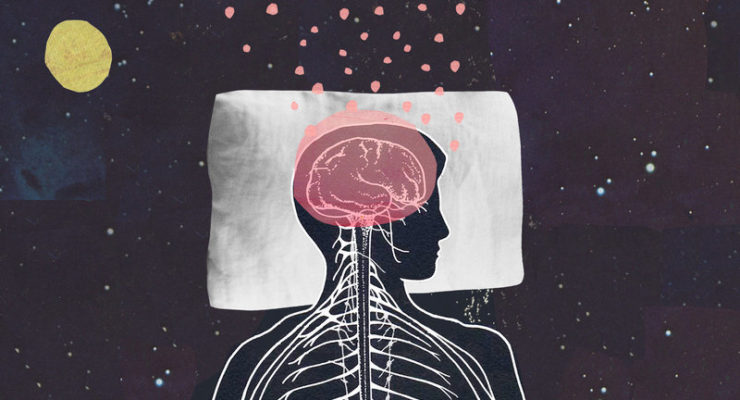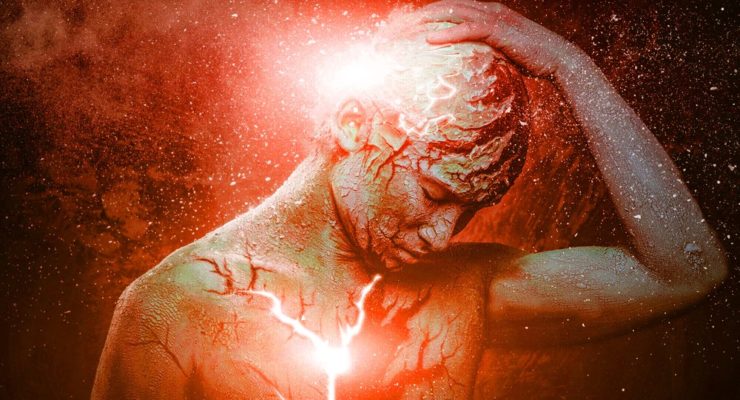(Science Daily) Neuroscientists have discovered how the listening brain scans speech to break it down into syllables. The findings provide for the first time a neural basis for the fundamental atoms of language and insights into our perception of the rhythmic poetry of speech.
science daily
Ayahuasca Compound Changes Brainwaves to Vivid ‘Waking-Dream’ State
(Science Daily) Scientists have peered inside the brain to show how taking DMT affects human consciousness by significantly altering the brain’s electrical activity.
Science Proves, Cuddling Babies Changes Their Genetics For Life
(David Neild) The amount of close and comforting contact that young infants get doesn’t just keep them warm, snug, and loved.
When Money is Scarce, Biased Behavior Happens Faster
(Science Daily) Discrimination may happen faster than the blink of an eye, especially during periods of economic scarcity, according to a new study from Cornell University.
Here’s Why Ants Are Practically Immune to Traffic Jams, Even on Crowded Roads
(Carly Cassella) To be an ant is to never get stuck in traffic. It’s one of the many perks (along with super-human strength, an armour-like skeleton and two stomachs, of course).
The Night Gardeners: Immune Cells Rewire, Repair Brain While We Sleep — And Stress Turns Them OFF
(Justin Deschamps) A recent study conducted by the University of Rochester Medical Center identified one of the brain systems in charge of repair and new connections. Microglia cells act as repair/connection bots for the mind, working to rewire your brain when you’re learning, whether, by study, daydreaming, getting triggered or action. What’s interesting is that stress seems to shut down this system, giving us insights into how we might maintain health into old age.
Animal Study Shows How Stress and Mother’s Abuse Affects Infant Brain
(Science Alert) A new study in rats shows the extent of brain damage in newborn rodents from even short-term abuse by their mother.
Findings Bridge Knowledge Gap Between Pheromone Sensitivity and Courtship
(Science Daily) Neurobiologists have made a series of discoveries about fruit fly fertility and smell. The findings solve a long-standing puzzle of whether and how courtship-promoting signals are amplified by olfactory receptor neurons, or ORNs. The researchers found that a channel known as PPK25 amplifies courtship signals in the ORNs of male flies. Biologically, PPK25 heightens males’ sensitivity to their mates’ odors at the age of peak fertility, thus promoting courtship when flies are most fertile.
Cultivating Joy Through Mindfulness: An Antidote to Opioid Misuse, the Disease of Despair
(Science Daily) New research shows that a specific mind-body therapy, Mindfulness-Oriented Recovery Enhancement (MORE), increases the brain’s response to natural, healthy rewards while also decreasing the brain’s response to opioid-related cues.
How Babies Integrate New Events into Their Knowledge
(Science Daily) Babies seek to understand the world around them and learn many new things every day. Unexpected events — for example when a ball falls through a table — provide researchers with the unique opportunity to understand infants’ learning processes. What happens in their brains as they learn and integrate new information?
How People With Psychopathic Traits Control Their ‘Dark Impulses’
(Science Daily) How do people with psychopathic traits control their ‘dark impulses?’ A team of researchers are finding answers in levels of gray matter density in the ventrolateral prefrontal cortex, a region of the brain involved in the regulation of emotions, including fear and anger.
Traumas Change Perception in the Long-Term
(Science Daily) Adults who have experienced maltreatment as children have a changed perception of social stimuli. Traumatized people found touch stimuli less comforting than people who had not experienced trauma. They also maintained a greater social distance from strangers. In addition, the researchers discovered changes in the activation of certain brain areas.
Testosterone Has a Complicated Relationship with Moral Reasoning, Study Finds
(Science Daily) Although some studies have linked high levels of testosterone to immoral behavior, a new study published in Nature Human Behaviour finds testosterone supplements actually made people more sensitive to moral norms, suggesting that testosterone’s influence on behavior is more complicated than previously thought.
Researchers Identify Glial Cells as Critical Players in Brain’s Response to Social Stress
(Science Daily) Exposure to violence, social conflict, and other stressors increase risk for psychiatric conditions such as depression and post-traumatic stress disorder.
Scientists Can Now Manipulate Brain Cells Using Smartphone
(Science Daily) A team of scientists have invented a device that can control neural circuits using a tiny brain implant controlled by a smartphone. The device could speed up efforts to uncover brain diseases such as Parkinson’s, Alzheimer’s, addiction, depression, and pain.














